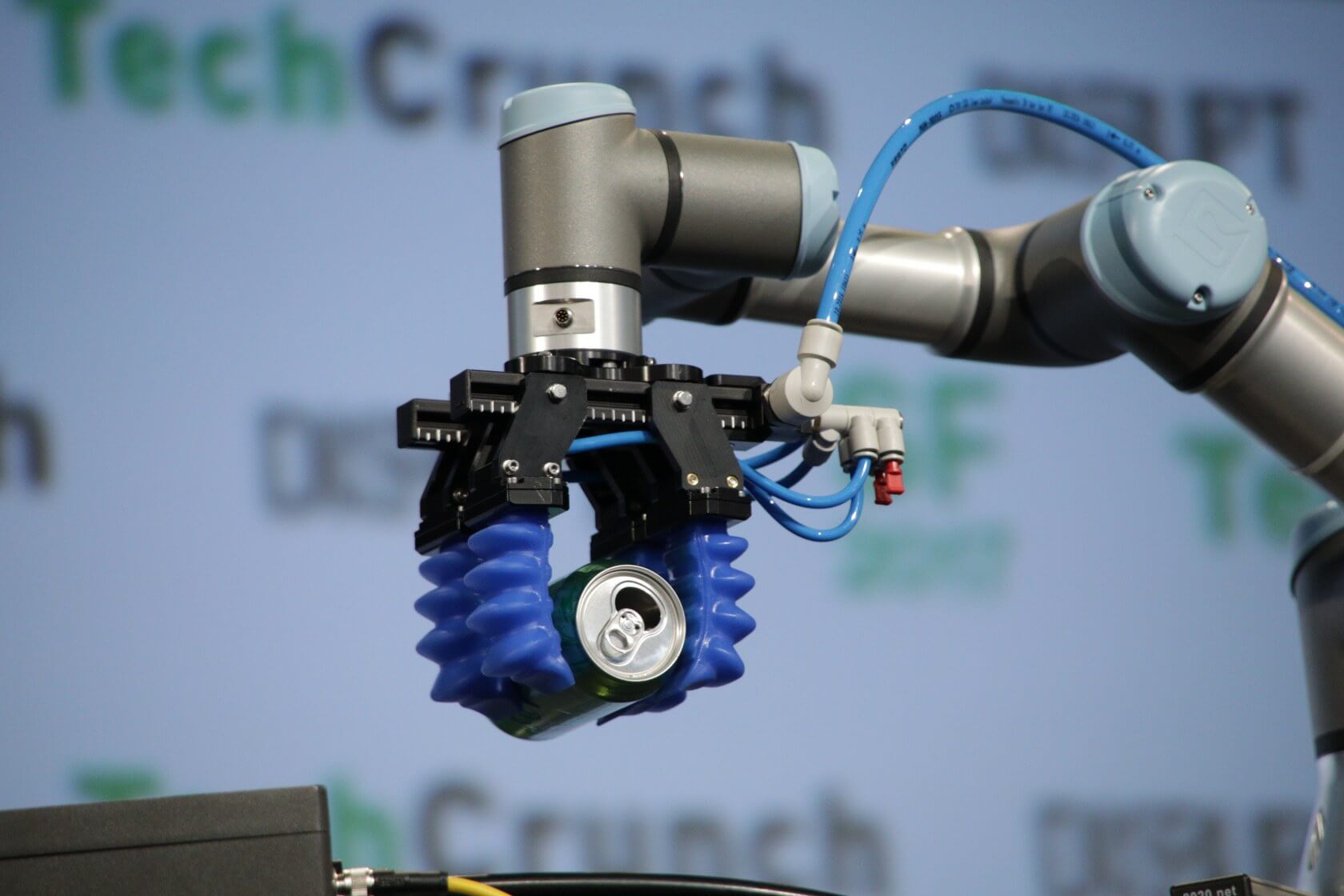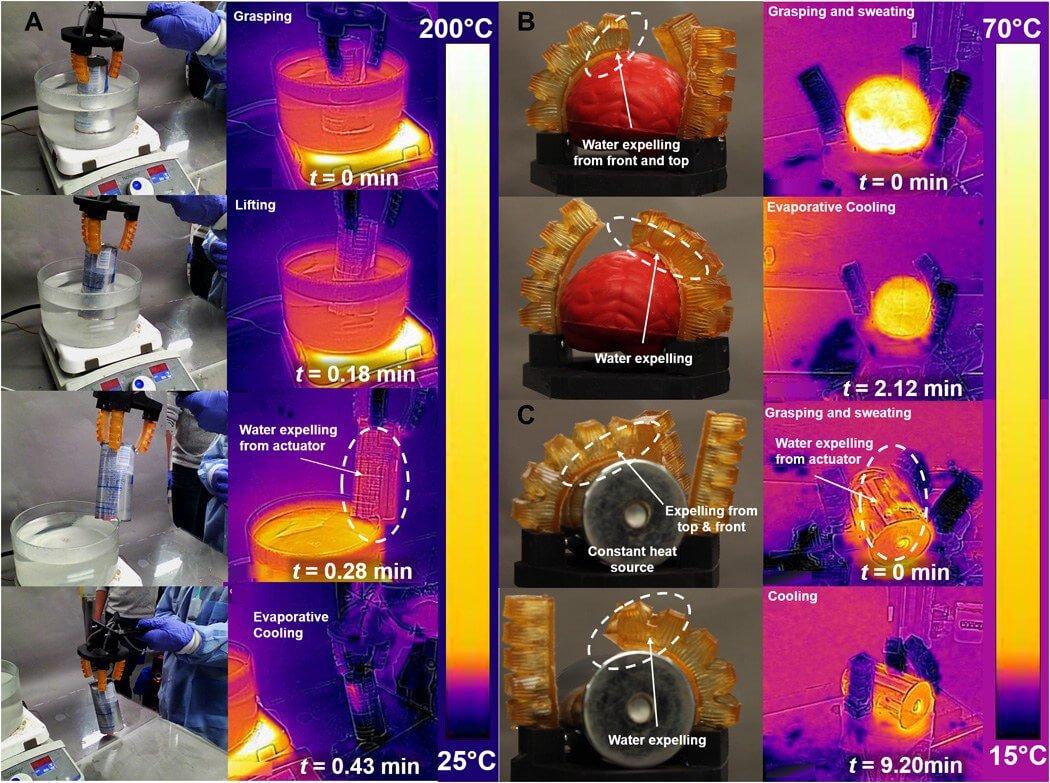Through the looking glass: Though it probably won't happen for at least another decade or so, there's a good chance many of us will live to see the day where robots become indistinguishable from humans. Some of the main milestones robots will need to hit before that time comes are obvious: human-like intelligence, realistic movements, and slightly less creepy faces, to name a few.

But what if robots could mimic humans in less obvious ways? That's a question one team of scientists decided to answer with their latest research, which has been published in Science Magazine.
Researchers worked together to create technology that allows soft-body robots to "sweat," and thus keep themselves cool. The team built a soft hydrogen-based "actuator" hand to prove their concept. The exterior of each of the robot's "fingers" is capped with a "microporous polyacrylamide dorsal layer," which contains temperature-sensitive pores.

At low temperatures, the pores remain closed, but when a given finger (or part of a finger) becomes too hot, the pores dilate, allowing for the water stored within to drip out in the form of "localized perspiration."
The idea is certainly impressive, but just how efficient is this form of cooling? According to researchers, sweating allowed their robot to exhibit a "600% enhancement in cooling rate" (about 39.1 degrees Celsius per minute) when compared to similar "non-sweating" devices.
Further, their version of sweating allows for even better cooling than you might see in the "best animal systems," though this comes at the cost of a "temporary decrease" in operational efficiency.
The full research is quite technical, but we've given you a brief overview of what the roboticists behind it have been able to accomplish. If words like photopolymerization, thermoregulation, and "gravimetric swelling ratio" don't scare you, though, you can read the full paper for yourself right here.
https://www.techspot.com/news/83781-researchers-create-robotic-hand-can-weat.html